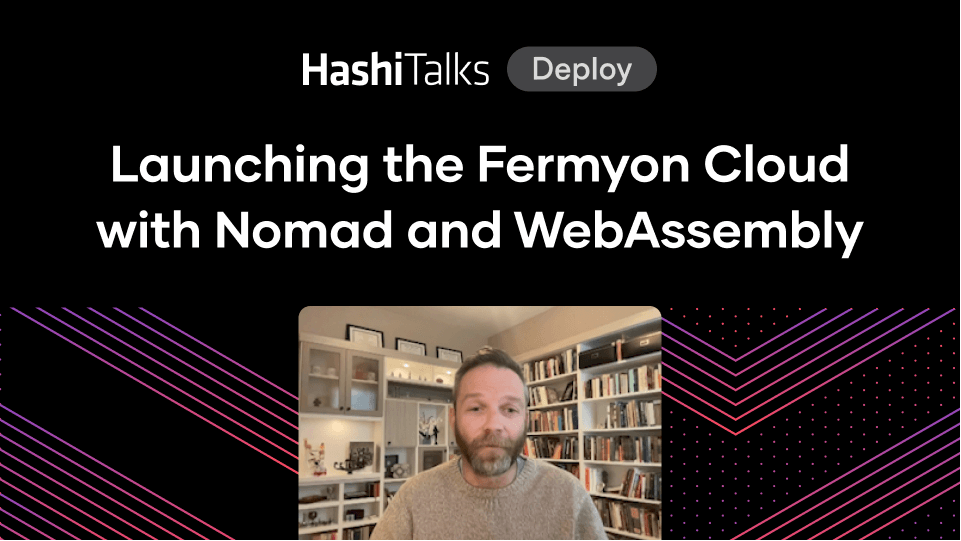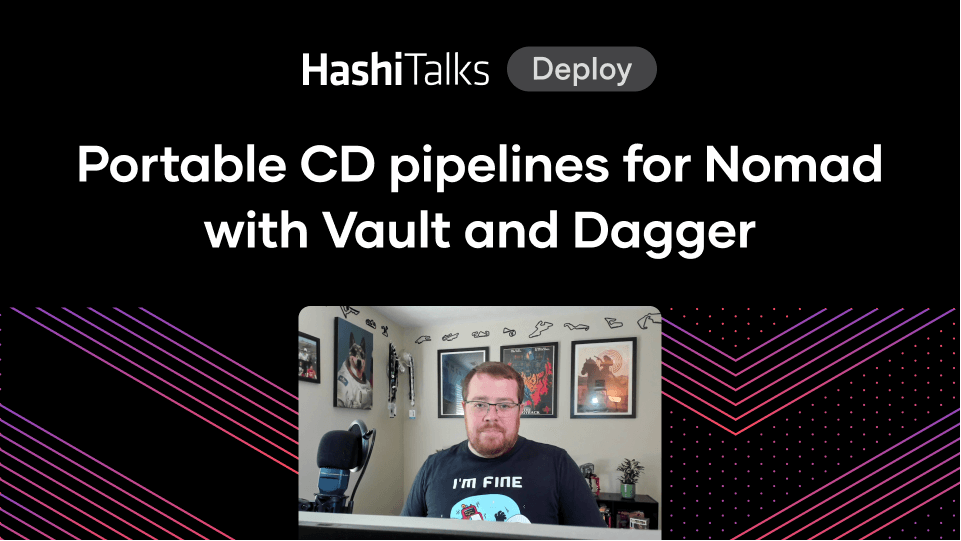Why HashiCorp Customers Choose Nomad
When choosing an orchestrator / scheduler, there are several solutions to compare.
Speakers
 Andy JamesSenior Solutions Engineer
Andy JamesSenior Solutions Engineer
Video notes
When choosing an orchestrator / scheduler, there are several solutions to compare.
Orchestrators
The most popular examples include: - Kubernetes - Mesos with Marathon - Amazon ECS - Docker Swarm - HashiCorp Nomad
Jobs
The first area of comparison is what kind of jobs each orchestrator can handle.
Many of the orchestrators assume that organizations will rebuild services to use only containerized Docker workloads, so there isn't as strong of an integration workflow for any heterogeneous or hybrid strategy that involves a bi-modal IT migration strategy.
Nomad integrates with hybrid infrastructures - Can Bin-pack more than just containers - Support for Raw & Isolated Executables, Java .jar files, and more - Open source task driver for custom workload support
Ease of Use - Nomad allows you to use a single Job file across hybrid infrastructures - Job files are written in HCL, not YAML
Security and Networking
Istio service mesh (service mesh helps provide zero trust networking doesn't work as easily outside Kubernetes clusters. This can make service mesh and integration between Kubernetes and non-Kubernetes systems difficult.)
Nomad works out-of-box with the more heterogeneous-friendly Consul HashiCorp Consul (and it's service mesh Connect feature)is built right into Nomad. So integration between Nomad and non-Nomad technologies is easy.
Nomad works out-of-box with HashiCorp Vault, one of the most trusted secrets management tools Vault is also built right into Nomad, meaning getting encrypted secrets into applications
Setup vs Other Orchestrators
- Kubernetes is about half a dozen applications
- Mesos Marathon is similar
- Dependency on multiple applications
- Nomad: Single binary runs on Windows, Linux, ARM, etc.
- Runs the same way on-prem as it does in the cloud
Nomad Customer Case Study
- Infrastructure of 11K+ Nodes
- Used by 500+ developers but managed by only 4 SREs
- We're seeing teams take an average of 30 minutes to learn Nomad
Amazon Elastic Container Service (ECS)
- Easy to run in AWS
- Docker only
- Not multi-cloud
Nomad Use Cases
- Low-complexity, low-footprint orchestration
- Non-containerized application orchestration
- Multi-cloud, multi-OS (Strong Windows use case)
To learn how to use Nomad, visit the Nomad Track on HashiCorp Learn. For enterprise use cases, visit the Nomad product page and please get in touch.



